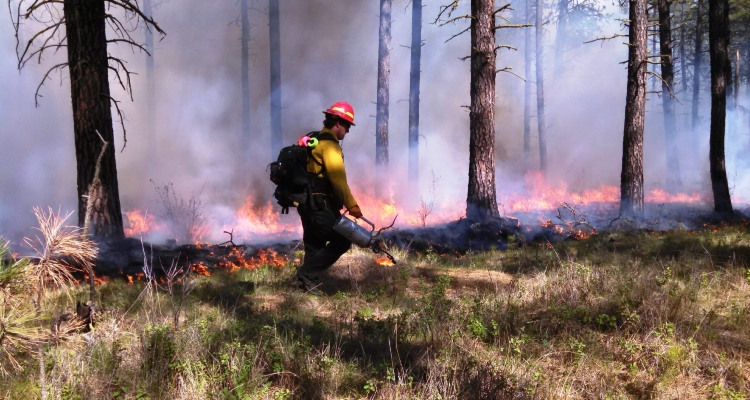
Uttarakhand is facing a significant shortfall in the infrastructure necessary for effective forest fire management, as highlighted in an amicus curiae report submitted to the National Green Tribunal.
The report, dated October 14 and filed by advocate Gaurav Bansal, details serious infrastructure gaps and operational challenges that undermine forest fire control efforts across the state, specifically referencing recent leaf-burning incidents in the Badkot forest range along the Rishikesh-Dehradun Road.
The report underscores that Uttarakhand lacks essential firefighting equipment and resources, such as protective goggles, specialized gear, and necessary tools. Additionally, the shortage of patrolling vehicles limits access to remote areas, while inadequate communication devices like wireless and satellite phones hinder coordination and rapid response during fire emergencies.
According to the report, the Forest Department struggles with infrastructure issues that include outdated structures unable to meet growing demands and a shortage of amenities at remote forest guard posts. “The state of Uttarakhand suffers from a glaring lack of essential infrastructure required for effective forest fire management,” it states.
It further criticizes the absence of regular review and maintenance of fire lines, an essential preventive measure in fire-prone regions. These fire lines have not been reassessed by the government for a considerable time, weakening the state’s ability to manage fires effectively.
A notable finding is the critical understaffing within forest management; currently, there is only one forest guard for every 2,448 hectares of forest. This shortage not only hampers fire control efforts but also places the burden of monitoring illicit activities like felling, poaching, and mining on the few guards available. To make matters worse, guards in Uttarakhand are often financially penalized for revenue losses caused by illegal logging, a system the report calls unreasonable given the overwhelming responsibilities on a single guard.
Further issues include the lack of insurance for daily wage and non-permanent staff, who face high-risk situations in their line of work. The report suggests that personnel who lose their lives in the line of duty should receive martyr status in recognition of their service.
To address these shortcomings, the report recommends that the NGT direct the Union Ministry of Environment, Forest, and Climate Change to allocate more funds for Uttarakhand’s forest department. It also proposes that officials responsible for forest fire control not be given additional duties, allowing them to focus solely on fire management.
This comprehensive report brings to light the urgent need for structural and financial support to bolster Uttarakhand’s fire management systems, emphasizing that effective forest protection requires both adequate manpower and the right resources.




